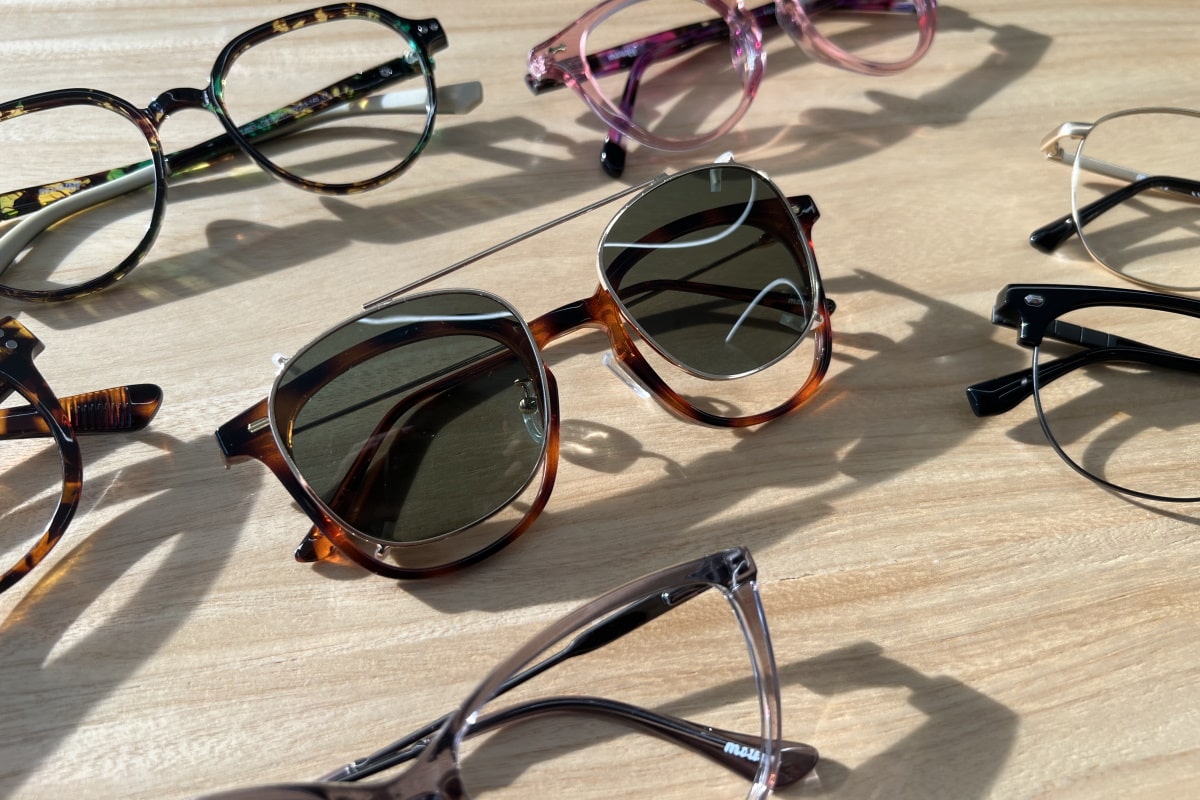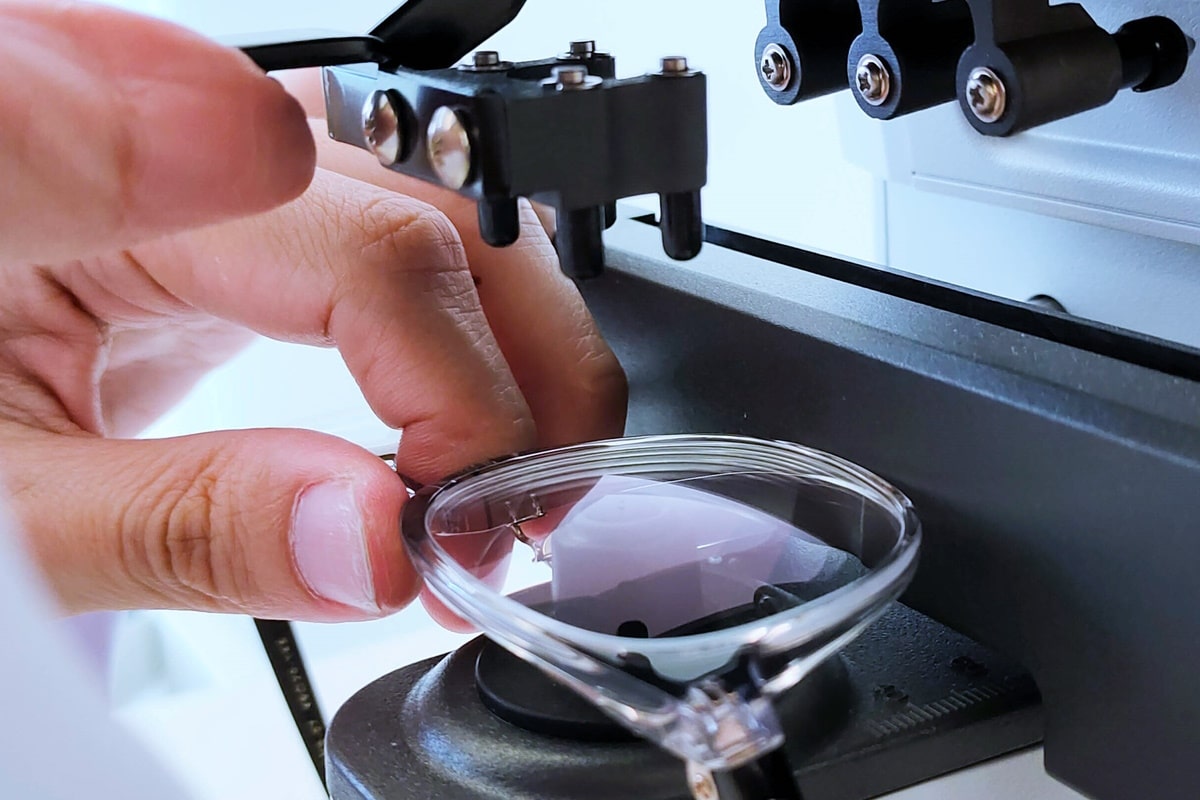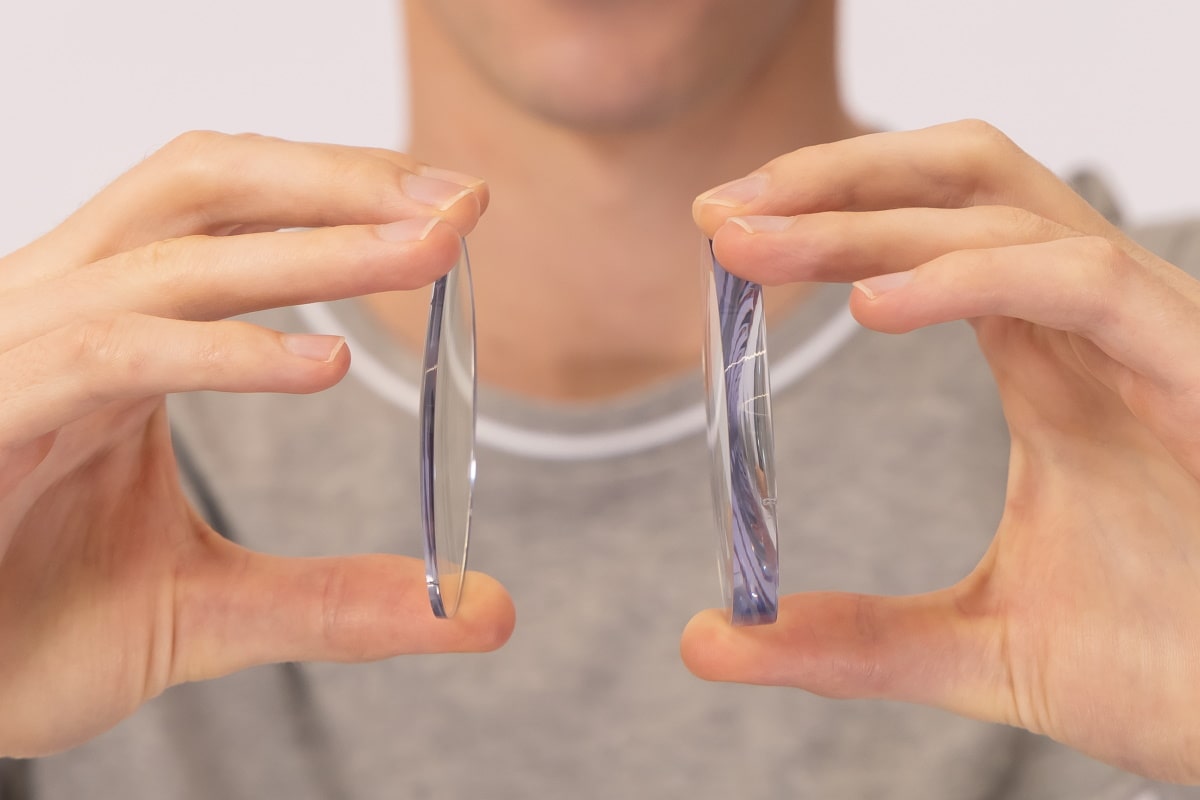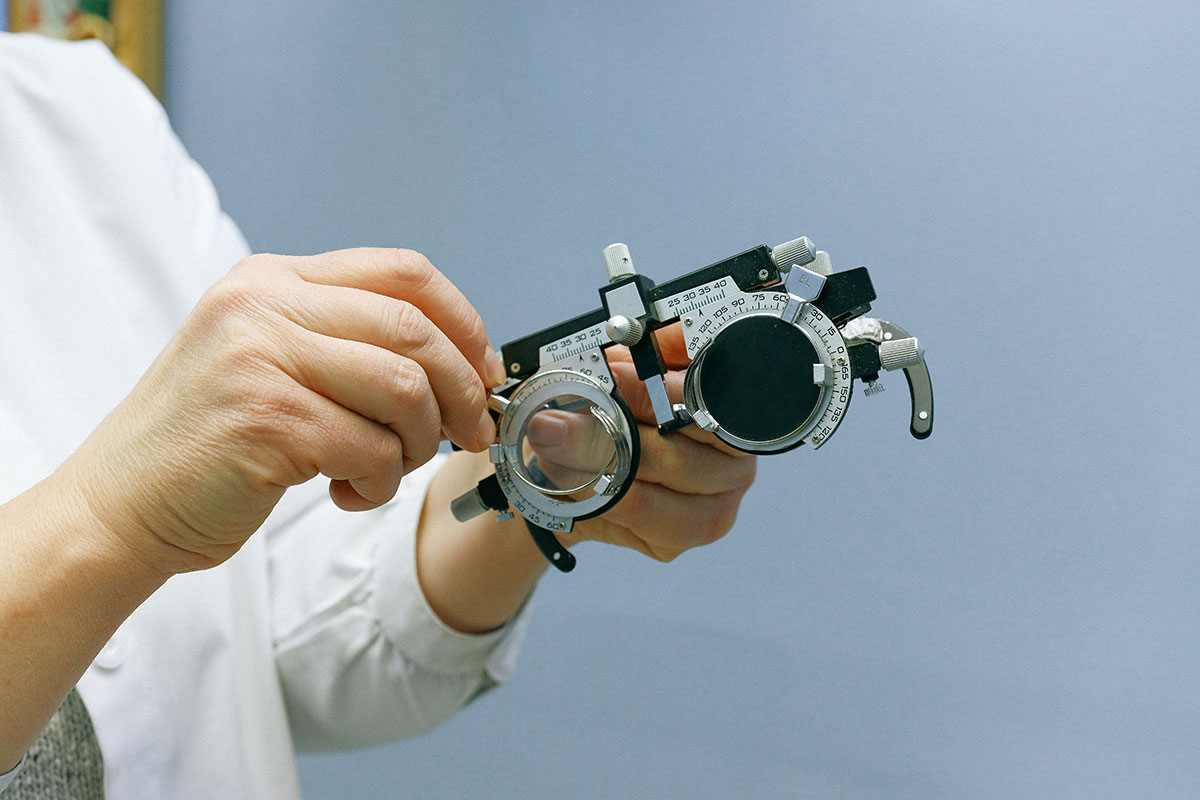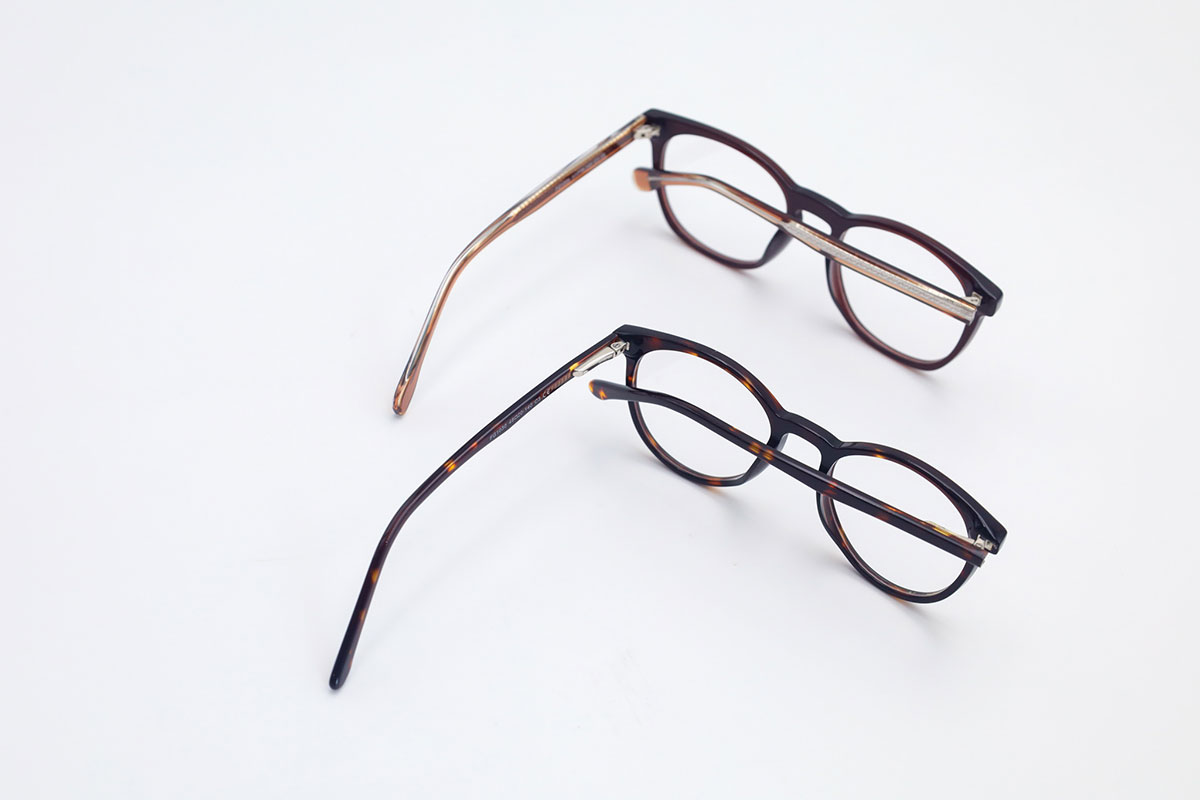Spheric vs. Aspheric Lenses: What’s The Difference?
Spheric or aspheric lenses?
How do they differ? And what do those terms refer to anyway?
Well – let’s start with the basics.
“Spheric” and “aspheric” refer to the shape of the lens. A spherical lens has a curved surface in all directions, in the same way a basketball does. Aspheric lenses, however, are curved in only some directions, and are flatter near the edges. This results in thinner and lighter lenses – great news for anyone with a high prescription who doesn’t want to deal with thick or bulky lenses.
Today, we’re explaining what these two types of lenses are and why we recommend aspheric lenses here at Mouqy.
Spheric vs. aspheric lenses – the differences
What makes spherical and aspheric lenses so different?
What are spherical lenses?
Spheric lenses are a common type of lens with a simple curved design.
The ‘spherical’ refers to the fact that the shape of the lens has a singular curvature on both its rear and front profiles – kind of like a magnifying glass.
Spherical lenses tend to be thicker and will have a more prominent curve, especially as the prescription increases. They’re sometimes referred to as ‘big belly’ lenses – since they tend to be bulkier.
This means that if you need a strong prescription, spheric glasses may not be ideal. The magnification can get quite obvious and give the wearer a warped ‘bug eyed’ look that’s not very aesthetically pleasing.
The plus side? Spherical lenses tend to be cheaper because the manufacturing process is more straightforward.
What are aspheric lenses?
In literal terms – aspheric means ‘not spherical’.
That’s because aspheric (or aspherical) lenses use an irregular curvature on its front profile – with different radii of curvature for different points on their surface.
This results in a slimmer and flatter surface – especially at the edges of the lens.
If you have a strong prescription, high index aspheric lenses can help accommodate this whilst letting you wear slim and aesthetically pleasing lenses.
But it’s not all about aesthetics – aspheric lenses tend to offer more precise light guidance. Whilst spherical lenses can create mild distortions, the shape of an aspheric lens can help objects look more natural and reduce aberrations or image errors.
What are double aspheric lenses?
Double-aspheric lenses take things one step further!
These lenses are irregular in curvature in both the front and rear surfaces of the lens. The result is a thinner profile that’s both even more lightweight and aesthetically pleasing.
Pros and cons of aspheric lenses
Aspheric lenses have both strengths and weaknesses. Let’s have a look at each.
Pros of aspheric lenses
- They’re ideal for high prescriptions as an alternative to thick and bulky lenses.
- Their slimmer profile gives your eyes a more proportionate and natural look.
- The flatter lens edges look more aesthetically pleasing in your frames. They are lighter and more comfortable for daily wear.
- They offer a superior optical performance compared to spheric lenses.
Cons of aspheric lenses
- They can give an increased reflection off its surface, so you’ll want to make sure there’s an anti-reflective coating on the lens (we add this coating to all Mouqy aspheric lenses).
- They can have a bit of distortion on the peripheral area of the lens.
- Aspheric lenses have a lower Abbe number which increases color distortion around the object that the wearer is seeing. The extent of this often depends on the wearer.
- Because of their more complicated manufacturing process, aspheric lenses can be more expensive.
When should you use aspheric lenses?
When should you consider using aspheric lenses, rather than spheric ones?
In our opinion – aspheric lenses simply offer a better visual experience for the wearer – with fewer aberrations and less distortion. Their lightweight nature makes them great for any pair of glasses that you plan to use regularly.
However, it’s glasses wearers who have higher prescriptions who will really feel the difference.
If you need a strong prescription, aspherical lenses are the way to go if you want to keep your lenses flat and sleek.
However, if you only have very mild myopia, you can get away with either type of lenses. If you’re on a smaller budget, spherical lenses may be the way forward.
However, it would be best if you discussed all possible options with your eye doctor before deciding whether aspheric lenses work best for you.
Can I use high-index aspheric lenses?
Both ‘high-index’ and ‘aspheric’ lenses have similar goals – thinner lenses for higher prescriptions.
Lens index refers to how efficiently the lens material can bend light. The higher the index, the more effectively that lens can bend light (check our guide on lens indexes for more detail).
It can be helpful to remember that these terms refer to two different aspects of a lens:
- Lens indexRelates to the lens material and how easily it can bend light.
- Aspheric lensRelates to the shape of the lens.
Aspheric lenses can come in a range of indexes. High-index aspheric lenses are a fantastic double-whammy solution for people who require strong prescription lenses.
Wrap up: Aspheric lenses are our pick
When shopping for new glasses, keep an eye out for the type of lens technology that’s being offered. Some eyewear shops carry only spherical lenses, whilst some may offer aspherical lenses – or both.
Here at Mouqy, we’ve opted to use aspheric lenses in all our glasses. We’re strong believers in the sleek and light design over the bulkier spherical equivalents – but also love the superior optical clarity.
Be sure to check out our full collection for stylish but functional frames!

Written by:
Shu Kie

